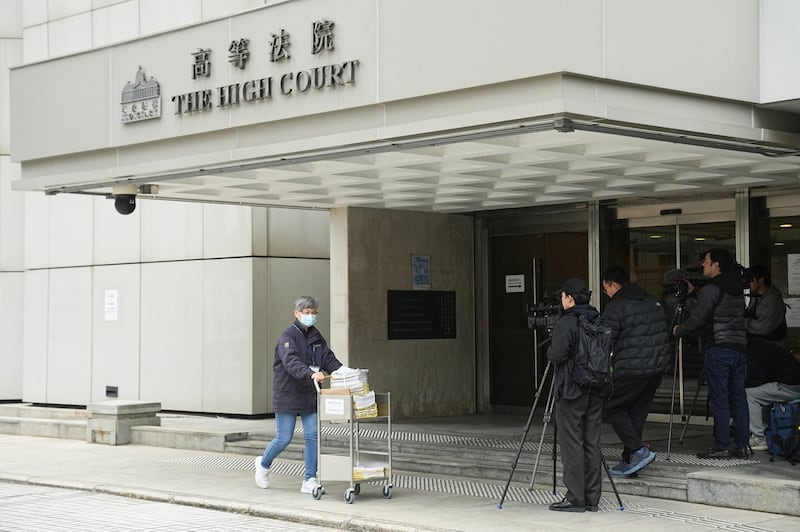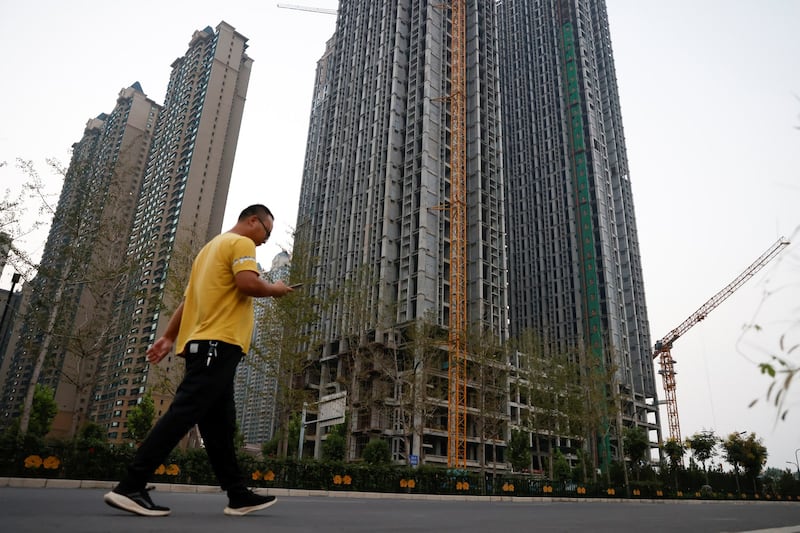After seven postponements, the Hong Kong High Court has finally issued a liquidation order against Chinese property giant Evergrande Group this week as China, the world’s second-largest economy, struggles to fix its worst real estate crisis amid shrinking growth.
Some analysts believe the liquidation marks the bursting of China’s real estate bubble and the end to any government rescue for indebted property developers.
Judge Linda Chan in her ruling on Monday stated that Evergrande’s debt restructuring plan lacked progress and the company was insolvent, so she officially ordered the company to be liquidated, according to Hong Kong media reports.
The collapse of the company, which has been laden with more than US$300 billion in liabilities, has also triggered more Chinese real estate defaults, causing job losses and protests from homebuyers who are left without assets.
In response to the court order, Evergrande Chief Executive Officer Xiao En said Evergrande Real Estate has been investigated by the China Securities Regulatory Commission, and the actual controllers of the group have been subject to compulsory measures in accordance with the law for suspected violations of laws and crimes.
“I’ve tried my best and I’m very sorry,” he said, as cited by China’s 21st Century Business Herald.“The group and Evergrade have tried our utmost to defend this offshore liquidation. We tried our best, and it’s very regrettable.”

Once the poster child of Chinese real estate, Evergrande borrowed heavily to finance the building of blocks and blocks of high-rise residential homes across the country. But its aggressive business approach ran into trouble, and it defaulted on its debts in December 2021.
Evergrande’s chairman, Hui Ka Yan, was also arrested last year and was under investigation for suspected crimes.
While thousands of Chinese property buyers have little means to seek compensation apart from turning to social media to vent and staging guarded protests, institutional investors have turned to the courts. The case that resulted in Monday’s ruling was filed in June 2022 by Top Shine Global.
Mainland Chinese financial experts interviewed by Chinese state media have played down the impact of the liquidation on the domestic market.
Speaking to the Securities Times, Li Shuguang, a professor at China University of Political Science and Law, said the impact on the interests of domestic bondholders is “limited.”
Separately, Wang Chunfei, an associate professor in accountancy at the Central University of Finance and Economics, said Evergrande’s problems are “an isolated scenario” in the industry.
But a financial scholar, Ling Si, told Radio Free Asia Evergrande’s liquidation is a wake-up call, which has also cast a huge shadow on real estate transactions.
“In the future, we can only rely on ourselves and bear business risks. If there is a break in the capital chain and liquidity risks, the Chinese government will most likely not make substantial intervention.”

As the Chinese economy splutters, Beijing is rolling back its austerity policy on speculation on the real estate sector which had been a major growth driver.
China’s state-run Xinhua News Agency reported Monday that Minister of Housing and Urban-Rural Development Ni Hong called for an “urban real estate financing coordination mechanism” to be established and local authorities to propose a list of financeable real estate projects.
A real estate industry expert from southern Guangdong province who only gave her surname Huang told RFA that while the government has tasted the consequences of its over-reliance on the sector, it also failed to find another way to replace its contribution to economic growth.
“If you want to stop an industry that accounts for such a high proportion of economic growth, many problems will arise,” Ms. Huang added.
Translated by RFA Staff. Edited by Taejun Kang and Mike Firn.
